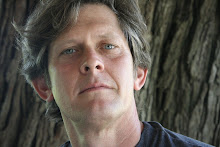It has always confounded me that religious leaders, especially southern evangelicals, have enthusiastically adopted the amoral (and in many cases immoral) political and cultural positions of free-market corporate interests and the politicians who shill for them.
A little background: As a child, my parents - both staunch Southern Baptists - shuttled our family to church at least 3 times a week. It was a ritual. We were prompt for Sunday School at 9:45 followed by church at 11, plus Sunday night services and Wednesday night Prayer Meeting. Sometimes, we met on Thursday night as well. Consequently, I became quite a student of the Bible.
I was a curious child. When I was in my early teens, I procured a Greek New Testament; as a closer link to the original text, I figured the translation would be more accurate than the standard King James Version we were required to own and read. My earnestness led me to seek out and focus on the teachings of Jesus since, in Sunday School we had learned that Jesus often corrected misguide disciples - the guys who allegedly authored most of the New Testament - when they offered their misunderstanding of his teachings.
Ironically, that practice is exactly what led me to move away from the Baptist Church as I found a disconnect between many of the teachings of Jesus and the political positions of the church. (That and the fact that, when I served as choir director in a splinter church at the age of 17, the deacons asked me to leave because the music was getting "a little to fast and a little to loud." Another ironic turn of events as today's rock-and-roll praise bands, in comparison, make my efforts to liven up Calvinist hymns seem extraordinarily tame. But that's another story.)
For example, according to the New Testament, Jesus imparted such wisdom as 1) don't attack your enemies, love them, 2) give money to the poor, feed the hungry, and clothe the naked, 3) don't judge people, 4) associate with people society frowns upon, and 5) don't covet wealth or turn the church into a business. Sounds a little to the left of Dennis Kucinich, doesn't it? Could you imagine any presidential candidate that ran on this platform getting any significant votes from the evangelical community? Hardly. In fact, evangelical Christians would most likely be the first to crucify - politically speaking - any candidate for public office who campaigned on these very issues.
And in terms of environmental awareness and stewardship, evangelical Christians have been almost uniformly hostile, increasingly so over the past couple of decades. More than one person has suggested that evangelical philosophy is this: "Jesus is coming soon to rapture the saved, so why take care of the environment since we won't be here to witness the devastation?" I don't really believe many evangelicals take this callous position. I think it's more the case that evangelicals adopted the worldview of free market secular forces who agreed with them on a small handful of hot-button political issues such as abortion. Over time, many evangelicals co-opted the inhumane social and environmental positions of so-called market conservatives they otherwise would have nothing in common with.
Cultural conservatives and religion were not always such cozy bedfellows. As recently as the mid-twentieth century, most religious leaders leaned more to the liberal side of the aisle, using biblical texts to underpin their political positions. In my opinion, this country (and the world) has suffered greatly because of organized religion's radical right shift away from many of the basic humanitarian principles laid out by the very guy - Jesus Christ - they named the religion after, and the religions establishment hasn't done itself any favors.
There's an evangelical bumper sticker that's been around for some time now: "Love the sinner, Hate the sin." I think when it comes to many evangelical Christians, the slogan might as well be, "Love the messenger, Hate the message."
So it comes as a refreshing turn that Dr. Moore is openly addressing this disconnect. A few excerpts:
"Every human culture is formed in a tie with the natural environment. In my hometown, that’s the father passing down his shrimping boat to his son or the community gathering for the Blessing of the Fleet at the harbor every year. In a Midwestern town, it might be the apple festival. In a New England town, it might be the traditions of whalers or oystermen. The West is defined by the frontier and the mountains. And so on.
When the natural environment is used up, unsustainable for future generations, cultures die. When Gulfs are dead, when mountaintops are removed, when forests are razed with nothing left in their place, when deer populations disappear, cultures die too.
And what’s left in the place of these cultures and traditions is an individualism that is defined simply by the appetites for sex, violence, and piling up stuff."
Sounds almost like a public service announcement from the Sierra Club, doesn't it? Check out Dr. Russell Moore's complete post on his blog - Moore to the Point - here.













